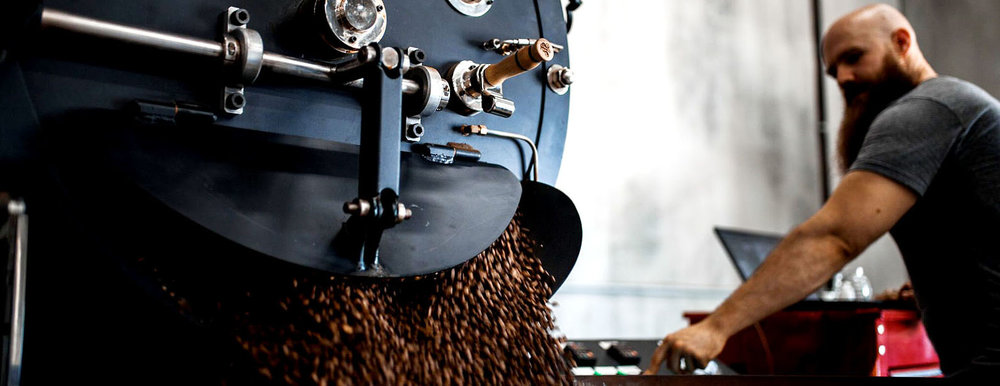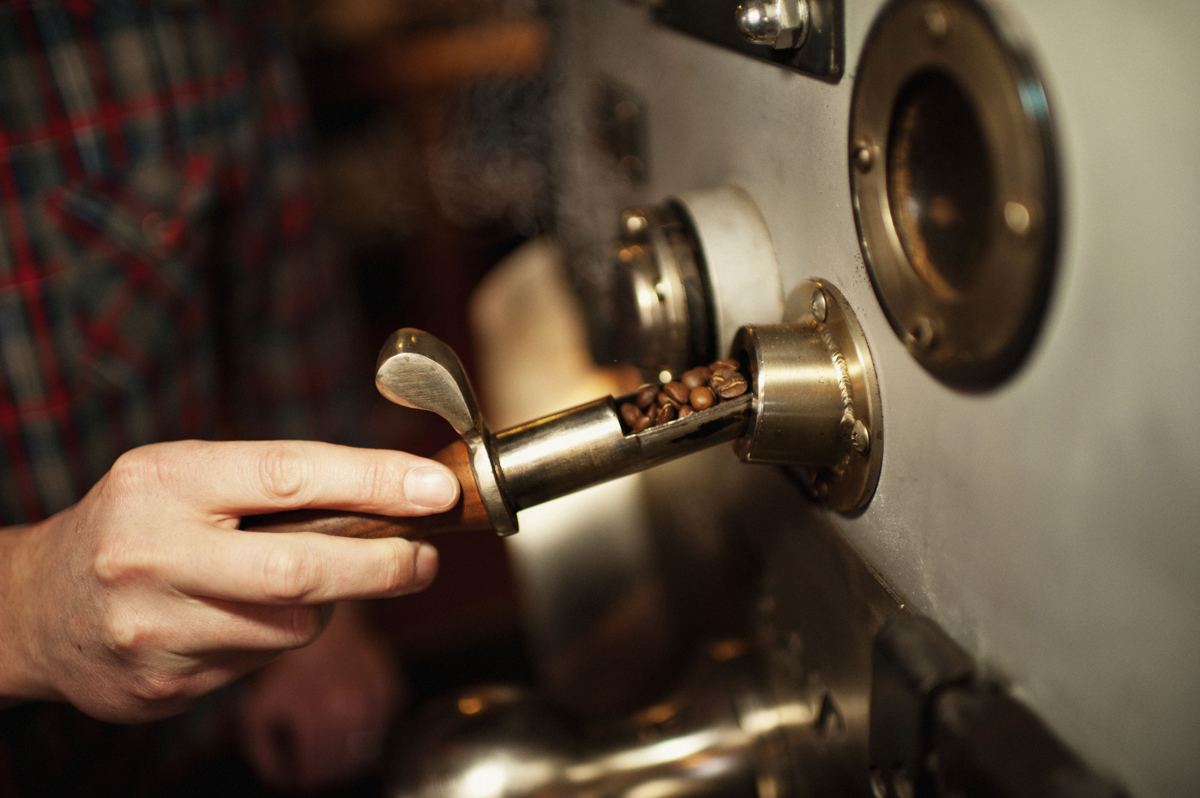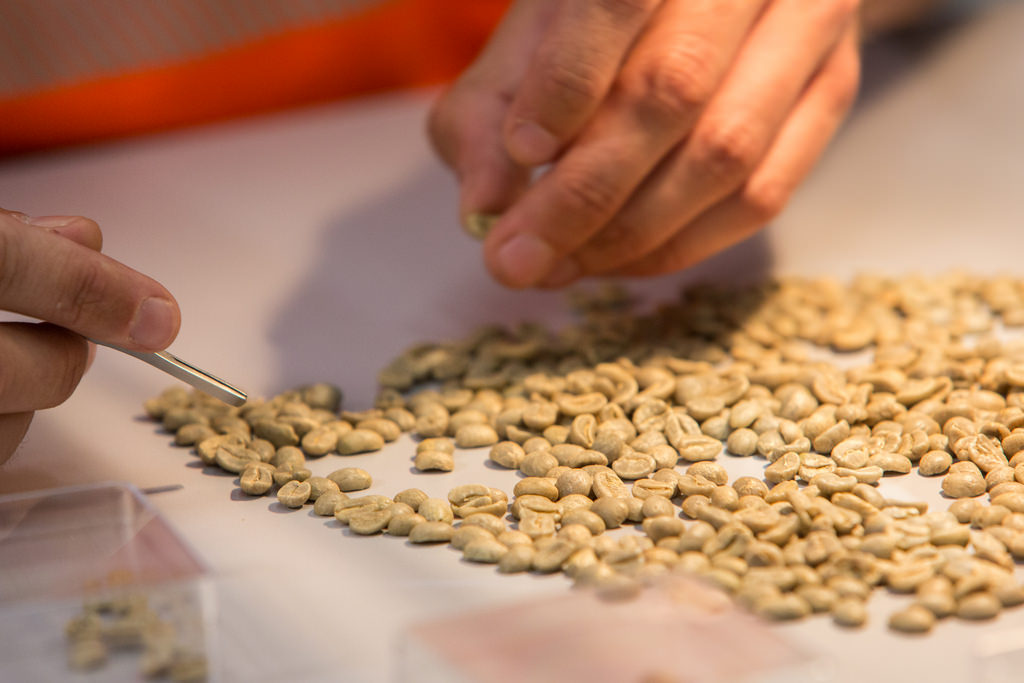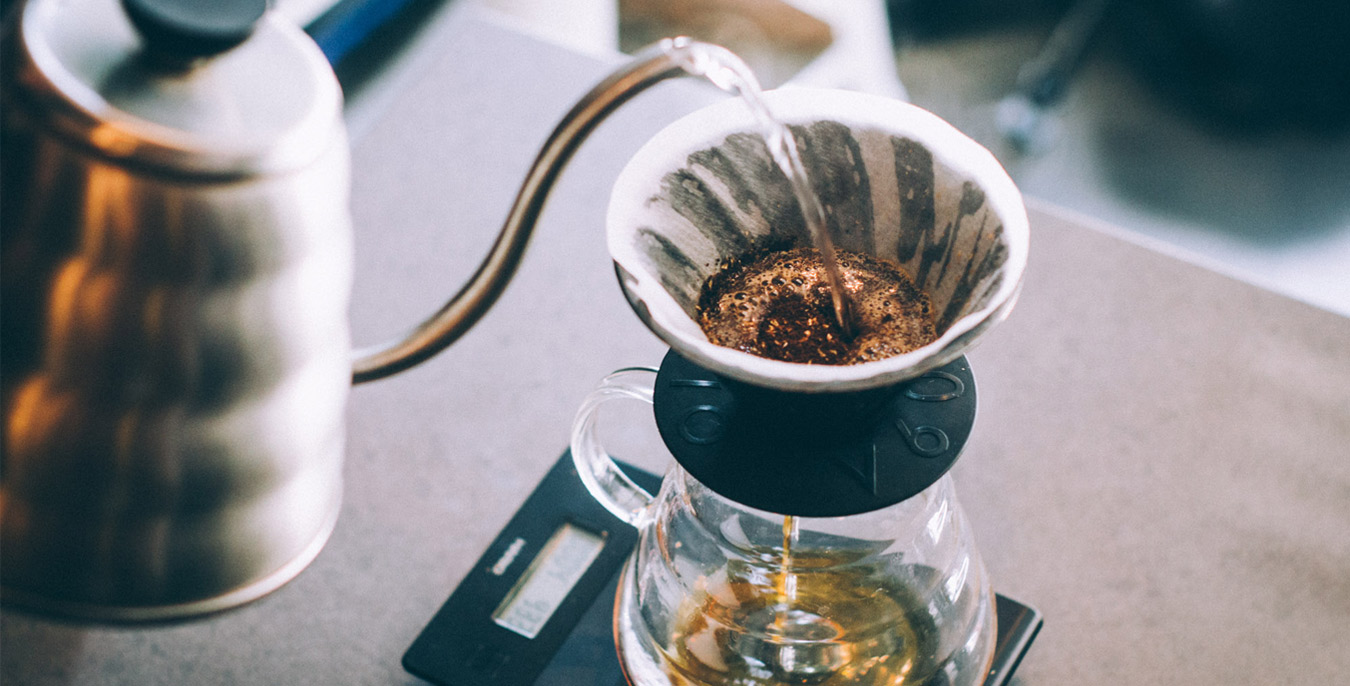Do you make money by baking your own coffee? How much does it cost to bake coffee beans in a coffee shop?
Professional coffee knowledge exchange more coffee bean information please follow the coffee workshop (Wechat official account cafe_style)
In China, where coffee consumption is growing rapidly, the coffee industry has shown an unprecedented active state in recent years. Thanks to the rapid expansion of international chain brands and the promotion of local Internet coffee brands, people's awareness and acceptance of coffee are also growing day by day. The most intuitive feeling of ordinary people should be that it is becoming easier and easier to buy a cup of coffee or a bag of coffee beans. There is no need to mention coffee, convenience store coffee, take-out coffee, chain coffee. Even second-and third-tier small cities are going to be enclosed by horse racing. And coffee beans, open a treasure, you will immediately be flooded by the vast coffee roasting shop. Walk into a slightly more professional coffee shop, if you can see bags of beans on display on the shelf. You don't have to guess, they probably baked it in their own house.

Compared with the purchase mode of foreign bakeries, the newly opened professional cafes in China seem to like their own baking more and more, and even many you qian coffee lovers will play second-hand web baking at home. It seems that Chinese people have a special preference for self-baking to create product features, so as to achieve the effect of market division. correspondingly, many experienced coffee lovers also like to find shops with "their own" characteristics to taste in the vast cafe. There will even be a picky mentality that "non-self-baking" does not taste.
But as there is more homogeneous competition under a large number of 'home', the differentiation we want to find seems to be becoming more and more difficult. More and more people play "home baking", but it seems that there are not many people who play well. Today, let's talk about it. Do professional cafes have to play baking? Is it really easier to make money in your own baked coffee shop?

Let's start with a question: what is the purpose of home baking, whether in a coffee shop or an individual?
"in order to create a unique coffee flavor and market segmentation."
"the beans on the market are so bad that there are no coffee beans that suit my preference, so I have to bake them myself."
There are thousands of own roasting coffee shops and bakeries in China. Is it true that none of the baking styles are liked or similar? Or maybe we haven't found it yet because we haven't had enough coffee or seen a small world? Of course, there is a possibility that you can find the store or bean that moves you, but the cost may be so high that you decide to invest time and money on yourself and start trying to find the flavor in your heart.
Since you want to pursue the flavor in your heart, do you know what kind of flavor you like? Can it be clearly defined? If you don't know what the flavor you're looking for looks like, how can you find it? Is the bitter sweet back to the sweet end of the rhyme? Or is it a gorgeous flavor with a short ending but an explosive fragrance? Or the balance of sweet and sour, the full level of change?
Often we all know what we don't like, but it's not so easy to say exactly what we like. I have heard from my own bakery that I like the 'original flavor' of coffee, so I insist on shallow roasting, hoping to show the 'natural' flavor of beans in a simple way. Since we all have to do 'home baking', doesn't that mean having a 'home' flavor? If your own baking is just to show the "original taste" of raw beans, what's the difference from other domestic coffee roasters that are also good at it? It tastes similar, but others produce it in large quantities. Isn't the price more competitive than your whole set of equipment from scratch?

And how much does baking cost? Let's do a simple calculation.
If you want to open a coffee shop, do you have to bake it yourself?
Why do many bakeries usually not recommend people to bake by themselves? Absolutely not worried that market competition will reduce their own business, the main reason is actually the "cost", to buy a set of baking equipment is not low, for the start-up coffee shop is very easy to become a burden. In today's article, we only focus on the cost of producing 'quality coffee' (no one plays home baking in order to get shoddy coffee. Right? ).
Expensive starting cost
If you want to play in a roasting coffee shop or individual, it should be an intuitive reaction to buy your own bean roaster. But the problem is that a stable bean dryer is really not cheap! If you use well-known imported models such as Probat, Gisen, Loring, Dierich, etc., the one kilogram class is at least 100000 takeoff, and the Taiwan-made Yang family used by many people costs about 20,000 to 30,000 yuan a kilogram. Of course, there are also small bean dryers under 10,000 yuan or smaller and cheaper bean dryers to choose from, but whether stability and output efficiency are enough will be a big hidden worry. There is no problem for coffee lovers who want to study roasting. Anyway, they are self-sufficient and pay for their own baking, but if they are produced by coffee shops, they should think more about it.

Forgotten environmental costs
After buying a bean roaster, there is still a troublesome smoke exhaust problem to deal with. Professional coffee roasting is not a range hood that can solve the smoke exhaust problem. It is usually necessary to buy an electrostatic processor or afterburner to deal with the oil fume produced by baking. The former is equipped with about 20,000 to 30,000 yuan, and there are about a few hundred yuan a month for cleaning, while the latter has excellent deodorization effect but a higher unit price of about 60,000 to 70,000 yuan, and gas also needs to be spent.
Is it possible not to buy? Of course, as long as your local neighbors don't protest and the EPA doesn't check it out. If the lease and equipment come in, but the neighbors protest that the lease cannot be opened, it will be really embarrassing to continue the lease.
It takes at least 30,000 to 50,000 yuan to get a stable set of bean baking equipment, and if it is shared over five years, the equipment cost will be increased by about 500 yuan per month, not including other equipment such as wishful coffee machines and bean grinders in the store. Well, I'm sure someone will want to say, who says the bean dryer has to be so expensive? Small steel cannon can also bake beans, hand net can also be ah! These devices can even be solved for more than a hundred yuan! Who went with you in the thousands.

Time is money, physical strength is not capital.
Yes, these are indeed feasible equipment choices. Hand nets can even form some store characteristics. Let's not discuss the technical problems that baking utensils such as hand nets and small steel guns are easy to learn and extremely difficult to stabilize. Today, we focus on the time cost of baking beans. The output of hand nets is usually only about 75tel 150g of raw beans, while RF300 is about 150g--300g. Taking into account the water loss rate after baking, the output will be reduced by about 20%. So the output of the RF300 is about between 120g--240g, which is about 1 pound of beans-- 1 pound of beans.
In the mainstream, the baking time of a pot is mostly about 10 minutes, plus preheating, cooling, weighing, cleaning, etc., on average, a pot takes about 15 minutes, so an eight-hour work world is about 32 pots. But if only one person works in bean screening, weighing, packaging, labeling, quality control, and so on, only about 20 pots of cooked beans can be handled, that is, about 10 pounds of ripe beans.
In the case of stores in first-tier cities, it is normal to consume about 3 or 5 pounds a week if they are in casual style or takeout, and if they maintain 5 items (or even more), they should prepare about 10 pounds of beans a week, and more if they have coffee beans on sale. In other words, if you use a 300g bean dryer, you will spend at least a whole day baking beans a week.
But if you have to open a shop in the morning, the beans can only be baked after work, and you have to work overtime for three or four nights out of the seven days. Then your day will turn into opening a shop in the morning, baking beans in the evening, sleeping and continuing your liver the next day, and spending time dealing with other chores and store marketing problems. Fuck in this way. The body will protest sooner or later. If it goes on like this, it is either a good shop or a good shop.
OK, then I'll buy a bean dryer with enough kilos. But in this way, the cost of sharing your equipment will soar, the time cost of maintenance and the cost of calling workers will jump triple, and the cost of each experimental baking and baking failure will also be multiplied several times at once. after all, a large kilogram of bean baker, a pot of beans must not be too few.
Is it cheaper to bake at home?
More than ten years ago, the weight of raw bean quotations took off by bag (60kg), it is also very difficult for ordinary people to access raw bean information, without a certain amount of raw bean merchants may not like you very much. But in recent years, there have also been more micro-stores, and our raw bean merchants have also followed the trend to produce small packages with 1kg or even hundreds of grams.
Now it is very easy to find raw bean merchants on the Internet and ask for quotations, and this situation also makes the domestic raw bean market more transparent. The advantage is that the chaotic price spike will be reduced. The downside is that willing consumers may question whether the store is' making a lot of money'.
In the current coffee cooked bean market, it seems that the purchase price of raw bean 1kg as the selling price of half a pound of ripe beans is the most common price reference. A kilogram of raw beans can be packed into 3.5 packets of half a pound of coffee beans after baking, so the cost of cooked beans is about 30%. In other words, 100 yuan per pack of fine coffee beans cost about 30 yuan, so some people wonder, 'one bag of beans makes 70 yuan, boss, are you profiteering?'
But we must not forget that there are still a lot of costs to be included. Rent, water and electricity, equipment consumption, lamp, oil, wax, etc. In fact, the material cost of a bag of cooked beans is about the same level as that of the general catering industry!
And if you cooperate with professional roasters to supply coffee beans, the discount will probably fall at 70% discount, and if the quantity is stable and large, you may be able to talk about a discount of 6 to 50%. If you buy goods from a large bakery, you can even buy a discount of about 40% or 50% of the market price, but the relative quantity may be very large at the very beginning, and there is a risk of hoarding goods.
So is it cheaper to bake by yourself?
There are provinces, but it doesn't seem to be much. Out of the cup is probably 20% more profit, in fact, it will be more obvious to sell 'beans'. If you simply come out of the cup, half a pound of beans can probably boil 13 cups, calculated in terms of 100 / half pound of fine beans. Talking to manufacturers about a 30% discount, the cost of a single cup is probably reduced from 7 yuan to 5 yuan (material cost plus equipment sharing), saving 2 yuan, but you want to save 2 yuan. In order to make up for the consumption of equipment and the capital of pulling raw beans once a month, your turnover is at least 2,000 yuan more than that of a non-baking store, and you have to sacrifice your rest time for baking.
So buy beans with others, although the cost will be 2 yuan more, but the corresponding increase in the price of a single cup of 3, 5 yuan is actually solved. In fact, none of us have added the risk cost of baking failure, raw bean selection, out-of-season inventory and so on.
Is that why home baking is so infeasible? In fact, not necessarily, home baking still has its advantages and advantages.
But before we want to take advantage of our own baking, we may have to ask ourselves, 'what is the purpose and meaning of home baking?'
END
Important Notice :
前街咖啡 FrontStreet Coffee has moved to new addredd:
FrontStreet Coffee Address: 315,Donghua East Road,GuangZhou
Tel:020 38364473
- Prev

What is a single producing area coffee beans, a single manor?
[single producing area] most of the coffee in the world comes from the harvest of small farmers in a single area. Farmers in neighboring areas will centrally hand over the harvested fruit to post-processing plants (similar to the concept of peasant associations), which will then be sold by processing plants. The coffee we drink in a single producing area is collected by the processing plant selecting the current harvest and mixing the hard work of dozens of farmers.
- Next

Hand brewed coffee steams actually can have or not! Steaming isn't essential for making coffee.
Professional coffee knowledge exchange More coffee bean information Please pay attention to coffee workshop (Weixin Official Accounts cafe_style) Generally common sayings and information found online (of course, there are our own articles of coffee workshop) Almost all the contents will tell you one-sidedly: For hand-brewed coffee, steaming is a crucial link, steaming is not done well, all subsequent
Related
- Beginners will see the "Coffee pull flower" guide!
- What is the difference between ice blog purified milk and ordinary milk coffee?
- Why is the Philippines the largest producer of crops in Liberia?
- For coffee extraction, should the fine powder be retained?
- How does extracted espresso fill pressed powder? How much strength does it take to press the powder?
- How to make jasmine cold extract coffee? Is the jasmine + latte good?
- Will this little toy really make the coffee taste better? How does Lily Drip affect coffee extraction?
- Will the action of slapping the filter cup also affect coffee extraction?
- What's the difference between powder-to-water ratio and powder-to-liquid ratio?
- What is the Ethiopian local species? What does it have to do with Heirloom native species?

